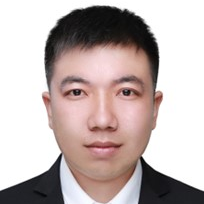Sustainable Development of Power Systems and Renewable Energy
A special issue of Sustainability (ISSN 2071-1050). This special issue belongs to the section "Resources and Sustainable Utilization".
Deadline for manuscript submissions: closed (30 November 2023) | Viewed by 4026
Special Issue Editors
Interests: invasive brain–computer interfaces; implantable electronics; biosensing; human–computer intelligent interaction
Special Issues, Collections and Topics in MDPI journals
Interests: photocatasis; piezoelectric; sensors; self-powered system
Special Issues, Collections and Topics in MDPI journals
2. Foshan Graduate School of Northeastern University, Foshan 528300, China
Interests: metal surface treatment technology; functional nanomaterials; catalytic and oxidation; low-dimensional semiconductor; photoelectric devices
Special Issue Information
Dear Colleagues,
In today’s world with high population growth, energy is one of the key factors affecting our quality of life and the sustainable development of modern society. At present, the demand for energy is increasing worldwide, and the continuous consumption of non-renewable energy sources leads to ecological degradation and even seriously affects human life and health. In response to the increasing consumption of limited traditional fossil fuel energy on the Earth, the search for sustainable energy sources with reduced carbon emissions and the study of green sustainable energy sources and energy storage technologies are urgent needs for the sustainable development of human civilization. Therefore, in this context, researchers are focused on achieving these requirements by exploring and developing advanced, sustainable, green, nano- and micro-scale novel materials for sustainable ecosystems as well as sustainable health monitoring processes.
The editorial team welcomes the submission of original research articles, reviews, or perspectives from diverse research backgrounds on current research interests in the field of new materials development or the integration of various processes using micro/nanodevice fabrication in sustainable energy development. Micro/nanodevice fabrication may include triboelectric nanogenerators or piezoelectric nanogenerators and their sensors, as well as renewable energy conversion devices. Welcomed topics include but are not limited to sustainable human body mechanical energy storage, sustainable human body mechanical energy sensing, triboelectric nanogenerators for sustainable energy applications, triboelectric nanogenerator fabrication for recyclable materials, and sustainable health monitoring.
Dr. Tianming Zhao
Dr. Yongming Fu
Prof. Dr. Baodan Liu
Guest Editors
Manuscript Submission Information
Manuscripts should be submitted online at www.mdpi.com by registering and logging in to this website. Once you are registered, click here to go to the submission form. Manuscripts can be submitted until the deadline. All submissions that pass pre-check are peer-reviewed. Accepted papers will be published continuously in the journal (as soon as accepted) and will be listed together on the special issue website. Research articles, review articles as well as short communications are invited. For planned papers, a title and short abstract (about 100 words) can be sent to the Editorial Office for announcement on this website.
Submitted manuscripts should not have been published previously, nor be under consideration for publication elsewhere (except conference proceedings papers). All manuscripts are thoroughly refereed through a single-blind peer-review process. A guide for authors and other relevant information for submission of manuscripts is available on the Instructions for Authors page. Sustainability is an international peer-reviewed open access semimonthly journal published by MDPI.
Please visit the Instructions for Authors page before submitting a manuscript. The Article Processing Charge (APC) for publication in this open access journal is 2400 CHF (Swiss Francs). Submitted papers should be well formatted and use good English. Authors may use MDPI's English editing service prior to publication or during author revisions.
Keywords
- triboelectric nanogenerators
- piezoelectric nanogenerators
- sensors or biosensors
- energy storage devices
- renewable energy conversion
- photocatalysis
- degradation of pollutants or dyes







